Florida attorney at odds with state bar over alleged 'personal attack' on Supreme Court
The attorney who successfully argued two landmark medical privacy cases said he got “a shot across the bow” from The Florida Bar after he wrote a letter to the Florida Bar News that criticized by name three Florida Supreme Court justices for their comments and written opinions in high profile abortion cases.
So George J. Felos of Dunedin returned fire with a public information request for the Bar's list of emails for licensed attorneys. He then directly sent the 1,260-word letter to the editor that its official house organ declined to publish to 77,000 Florida attorneys.
Felos is perhaps best known for representing Michael Schiavo, husband of Terri Schiavo, the Florida woman in a 'persistent vegetative state' who was the focus of the right-to-die debate before her passing in 2005.
Felos' letter expressed concerns about the politicization of the judiciary that he said has contributed to an increasing loss of faith among the public that the court is an independent, impartial decider of law. The Florida Bar News does not publish commentaries or opinion pieces but does accept letters.
But the Bar News declined to publish his opinion piece or accept it as a paid advertisement. The rejection letter copied the language in the Bar's Professional Rules of Conduct prohibition against impugning the motive of a sitting judge, which suggests a rule violation.
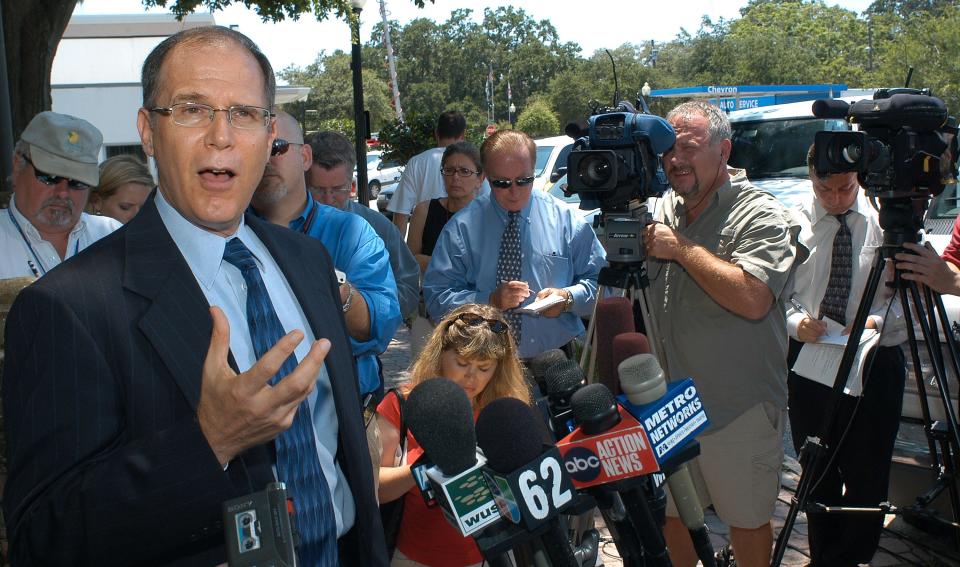
The exchange between Felos and The Bar unfolds in advance of a November election when voters will decide a ballot initiative on whether to enshrine a right to an abortion in the state constitution.
If supporters pass it, a Legislature proven hostile to abortion rights will surely test the limits of the new constitutional protection, resulting in legal challenges that will ultimately be decided by the Court.
Felos and others wonder if the expected legal challenge will get a fair hearing.
He was the winning attorney in two cases – In re Browning (1990) and Bush v. Schiavo (2004) – that resulted in rulings that established the right to make medical decisions in private and prohibited the governor from using executive authority to abolish that right.
Now Felos fears those and other privacy rights are in jeopardy.
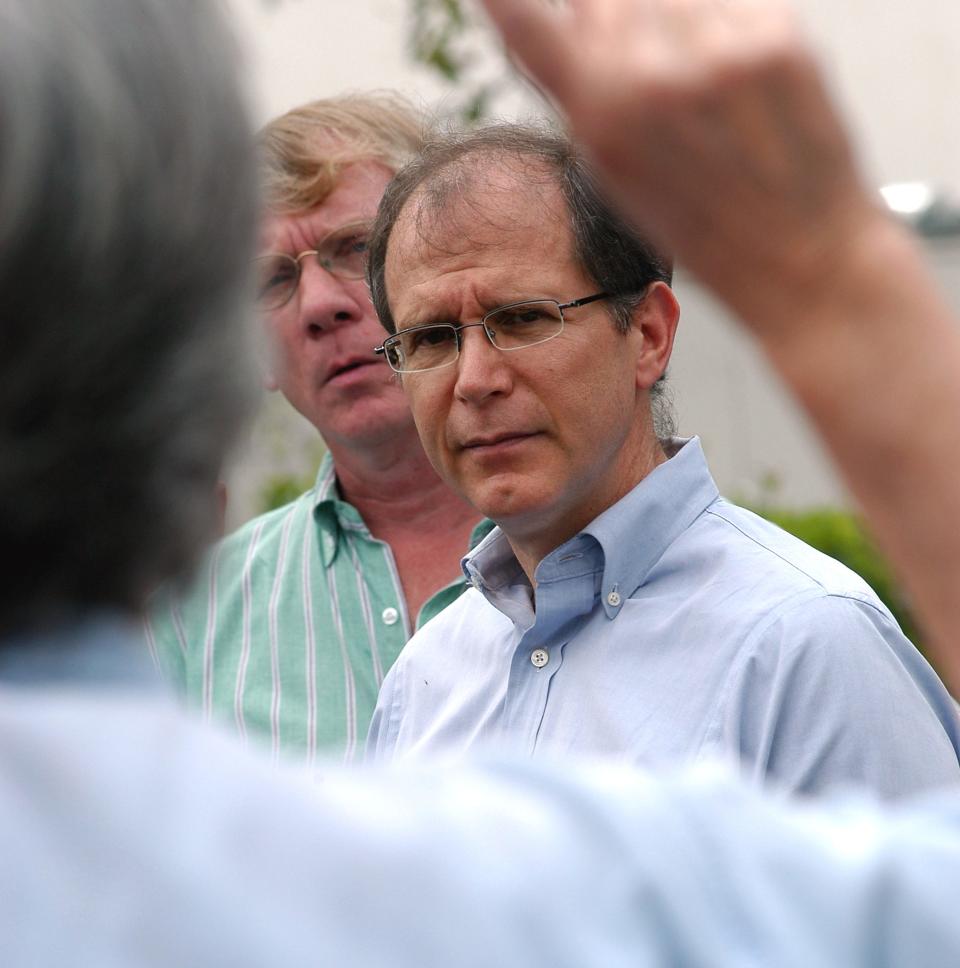
In the statements justices made and the line of questions they pursued during oral arguments to uphold a 15-week abortion ban and to clear an abortion initiative for the ballot, Felos and others heard the machinations of a multi-year campaign by extreme partisans to capture the judiciary.
“Critics would argue that the Florida Supreme Court has been stacked with not just Republican judges, but with a certain kind of Republican justice, who in most circumstances you know how they're going to vote on an issue. Not all, but most,” said University of Central Florida political scientist Aubrey Jewett in an interview about Gov. Ron DeSantis' and former President Donald Trump's judicial appointments.
Felos wrote that as a lover of the rule of law it saddened him to watch “our Supreme Court devolve into a third political branch of government, where decisions appear to be based upon the personal beliefs and political agendas of the justices and governor who appoints them.”
He quoted Chief Justice Carlos G. Muniz and Justices Jamie Grosshans and Meredith Sasso to support his conclusion that, by the justices expressing their beliefs about abortion, the public may reasonably perceive those beliefs are influencing their rulings.
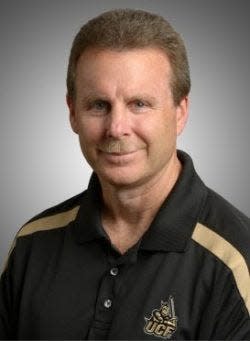
"In his letter, Mr. Felos directly criticizes the justices by name, saying they have allowed personal beliefs to sway their decisions. We consider that a personal attack. According to our editorial policy, we do not publish letters or advertisements with personal attacks," Florida Bar spokesperson Jennifer Krell Davis said.
The Supreme Court sets ethical standards for the legal profession, and The Florida Bar recommends discipline for violators. Felos took the rejection letter's use of language from the Bar's Rule of Conduct as an attempt to intimidate him.
“Some may conclude that (the Bar's bringing up the rule) was designed to create a chilling effect upon my constitutionally-protected, First Amendment right of freedom of expression,” Felos told the USA TODAY Network-Florida.
In a subtle jab at the Bar, Felos also said the rule in question encourages attorneys to speak out when they earnestly believe it is for the betterment of the judiciary. In this case, the need to protect the judiciary's independence.
“I’m fulfilling my duty as an attorney to point out where the courts have gone astray,” Felos said. "As the enforcer of these rules, I'm both sad and sorry to see that The Florida Bar is unable to facilitate the spirit of that rule."
The Bar did not respond directly to a question about whether taking language from its Rule 4-8.2 to reject a letter to the editor was meant to intimidate Felos. Krell Davis said, however, The Florida Bar News' decision to reject Felos' piece adhered to an editorial policy to limit letters to 350 words and prohibit personal attacks.
The dispute is a collision of competing values, according to Jewett, a co-author of “Florida Politics,” a several decade-long analysis of Florida's governors, legislature and judiciary.
Jewett said judicial ethics requires Bar members not to do or say things that bring the judicial system into disrepute.
“Because the whole idea is that we’re supposed to encourage the average Floridian to respect the judiciary and have faith in the judiciary and believe that the judiciary is objective, and that it will seek justice for whoever comes before the bench,” he added.
But the crux of Felos’ argument, according to Jewett, is that the justices are saying and making rulings that lead people to lose faith that Florida “has an objective, neutral judiciary.”
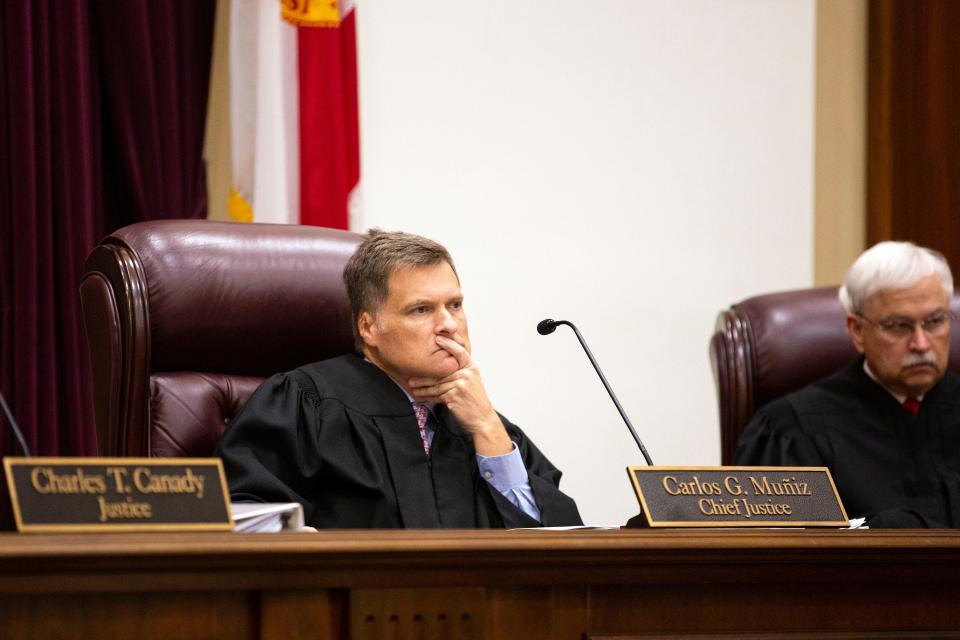
Felos outlined in the piece he submitted to the Bar News how both former Trump's and DeSantis' appointment of judges with known anti-abortion credentials has undermined the public’s faith that court decisions are based upon underlying legal principles.
“That is not a subjective statement," Jewett said.
Approval of the U.S. Supreme Court is at 41%, a historic low in Gallup polling. Jewett suspect numbers for the Florida Supreme Court would be in the same range.
“Critics can clearly point out how Republican President Trump and Republican Gov. DeSantis picked Federalist Society members who came with strong recommendations from conservative insiders that basically vouched that they would vote a certain way,” Jewett said.
The Federalist Society is a 42-year-old association of attorneys, professors and law students with a mission to challenge "a form of orthodox liberal ideology which advocates a centralized and uniform society."
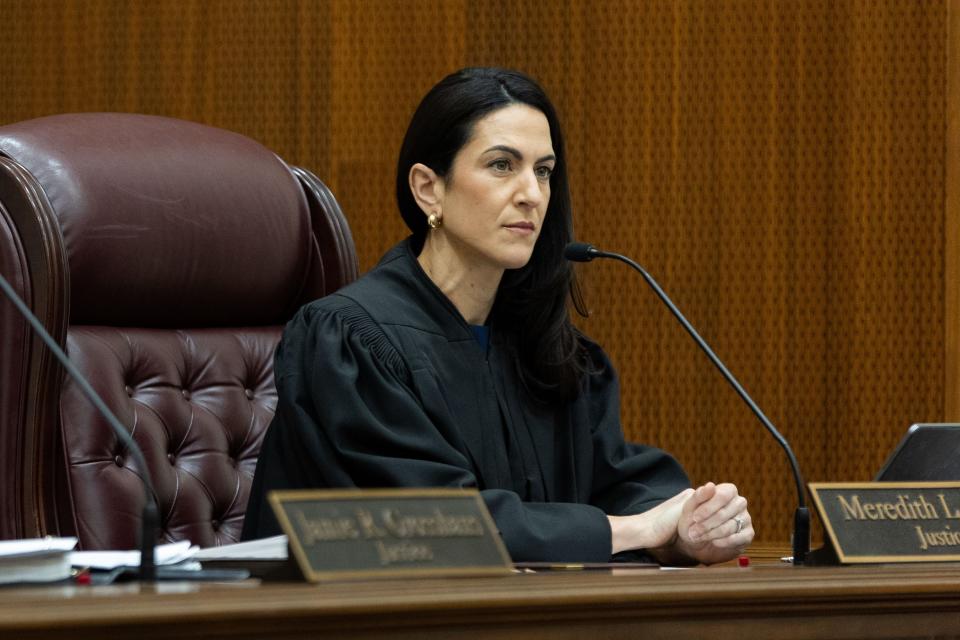
Muniz, Sasso, Grosshans and Justice Renatha Francis were all reported members of the Federalist Society when appointed by DeSantis and are named in Felos' opinion piece.
Exhibit A in Felos’ argument that the Florida Supreme Court has gone astray are Muniz's and Grosshans' musings about a fetus and the section of the Florida Constitution that grants all "natural persons" an inalienable right "to enjoy life."
In one opinion, Grosshans wrote that the court has yet to address whether the provision applies "to the unborn and, if so, what the scope of those rights could be.”
And during oral arguments in the challenge to the abortion rights initiative on Feb. 7, Muniz said, "I don’t know that I could affirmatively say that the term ‘natural person’ doesn’t, as a matter of ordinary meaning, include the unborn.”
Such statements shocked Felos: “That’s an expression of his personal beliefs. If you believe the unborn to be human beings, of course, you’re going to extend legal rights to them.”
A court spokesman said members of the Supreme Court have the opportunity to speak in open court and through their opinions, but that judicial ethics limit their commentary beyond that.
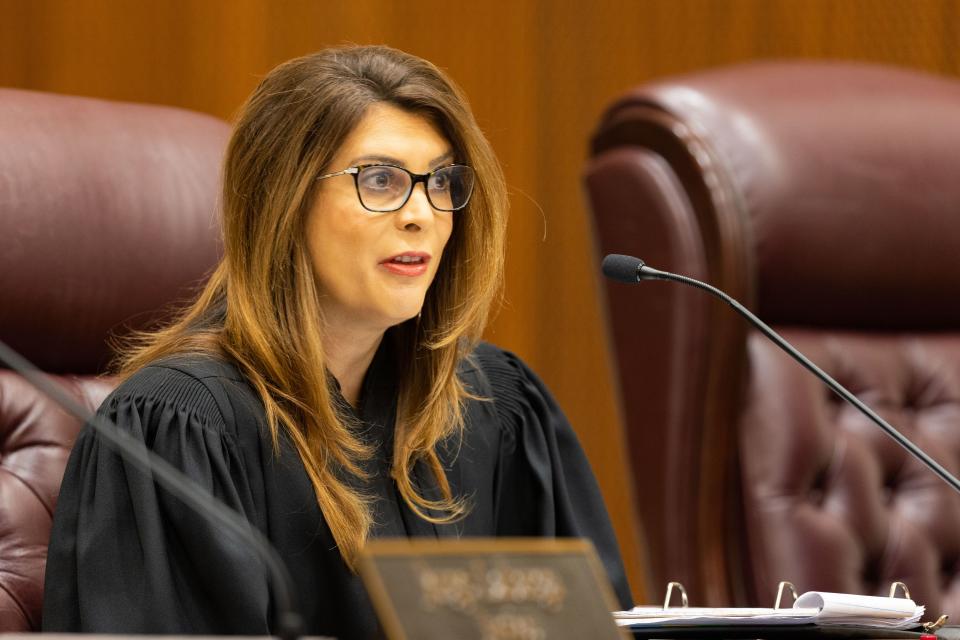
"Justices must remain neutral on issues that may come before the court in the future," Paul Flemming said. "For these reasons it would be inappropriate for justices to comment or to provide a statement."
Felos said he launched no personal attacks against any of the sitting justices, as the rejection letter from the Bar says he did. He maintains he only cited their words and drew conclusions from what had been said.
Jewett added: “I think a critic would say, if anybody’s impugning (the justices') integrity, it’s their own rulings.”
Felos said he would have dropped the matter after the commentary was rejected if the Bar News hadn’t suggested he committed a rules violation.
When it did, Felos got the Bar's membership roster and entered it into an mass email sending service, which sent his letter to 77,000 Bar members, so they could decide who impugned who, he explained.
“It’s (The Bar's) newspaper. They can choose to print what they want. But when they (said) they’re not (running it) because it impugns the motives of the justices by name, it does not. That’s false. That’s why I sent it out.”
James Call is a member of the USA TODAY NETWORK-Florida Capital Bureau. He can be reached at jcall@tallahassee.com and is on X as @CallTallahassee.
This article originally appeared on Tallahassee Democrat: FL Supreme Court abortion remarks spark debate between attorney, bar
